Weapons
Stabbed by Beauty
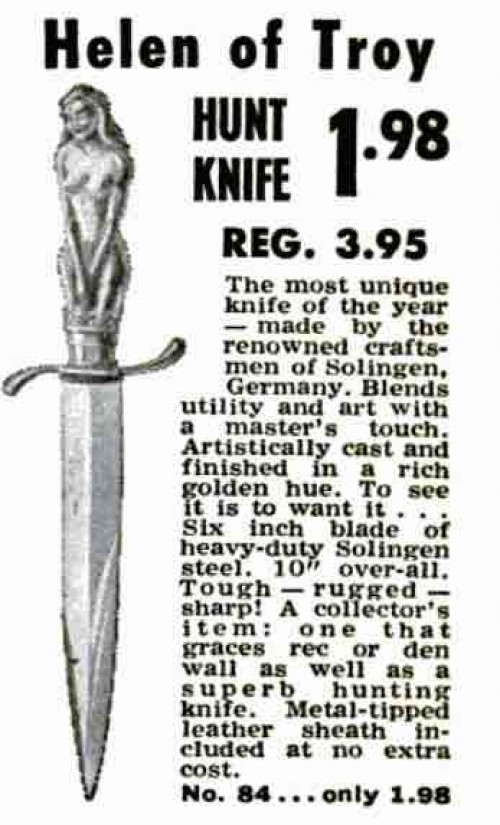
Original ad here.
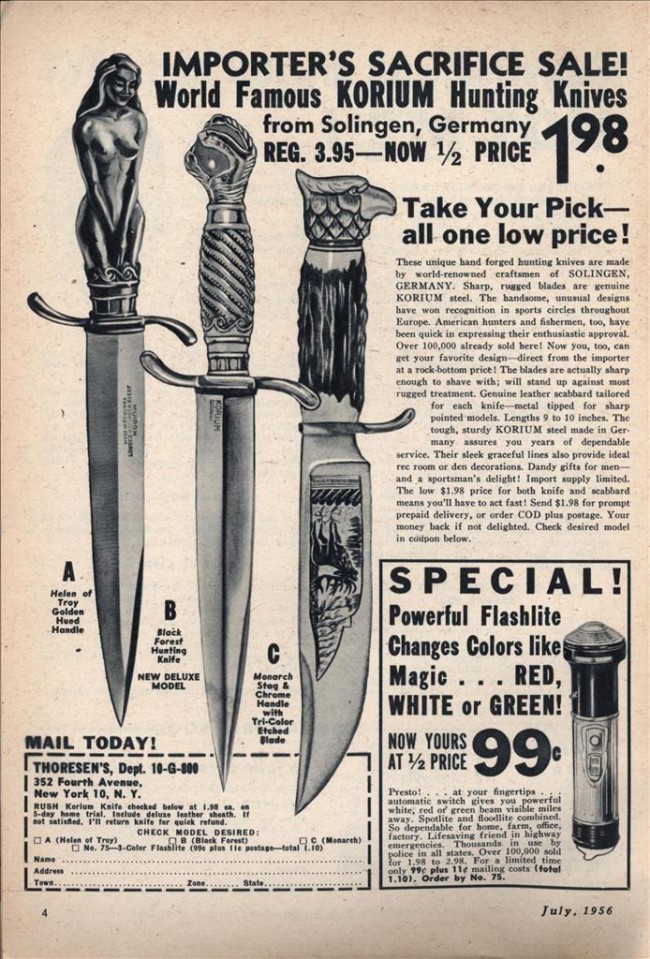
Posted By: Paul - Thu Oct 06, 2016 -
Comments (7)
Category: Beauty, Ugliness and Other Aesthetic Issues, 1950s, Weapons
Follies of the Madmen #293
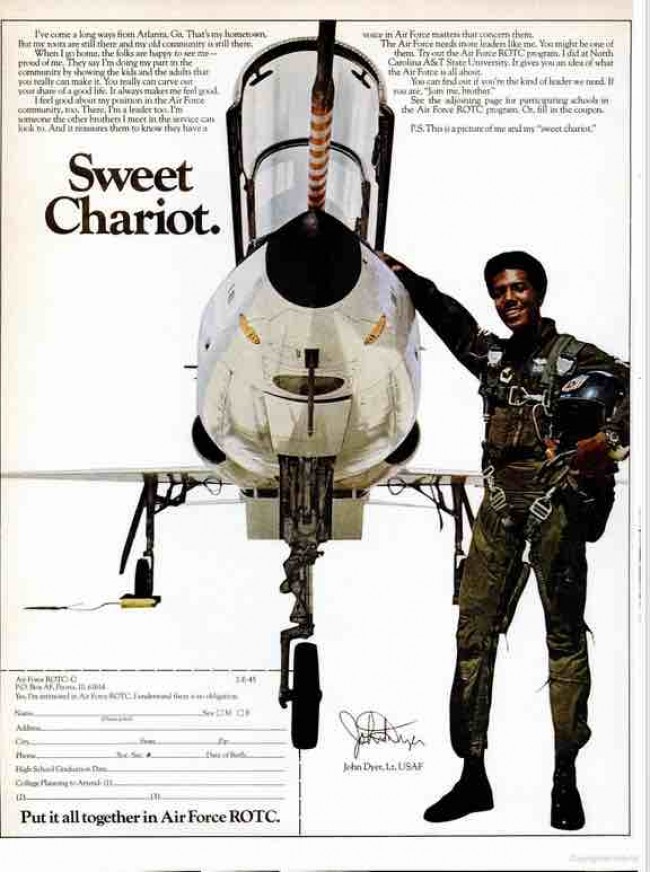
Death-dealing war instrument of mass destruction compared to treasured hymn.
Original ad here.
Posted By: Paul - Mon Sep 26, 2016 -
Comments (6)
Category: Death, War, Armed Forces, Weapons, Advertising, 1970s
Early Car Bomb and/or Guided Missile
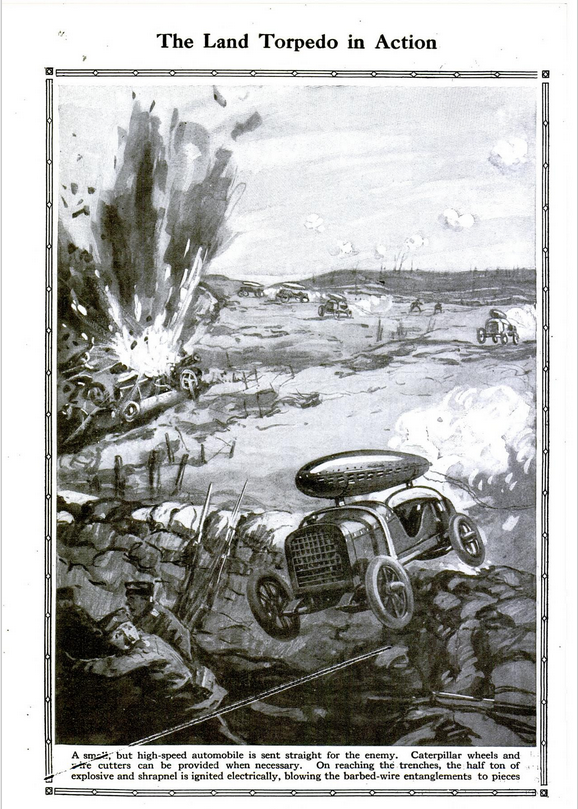
Original article here.
Posted By: Paul - Tue Sep 13, 2016 -
Comments (9)
Category: Inventions, War, Weapons, 1910s, Cars
Bullet-proof Bible
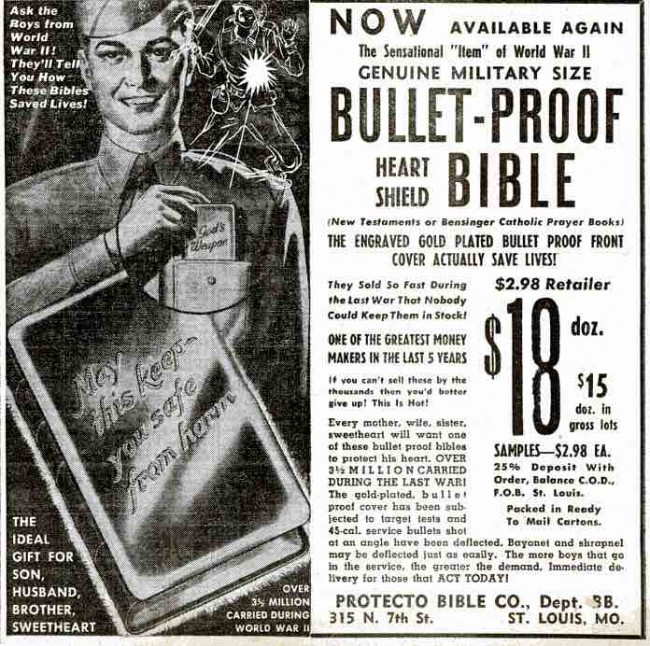
Original ad here.
Posted By: Paul - Wed Jun 08, 2016 -
Comments (11)
Category: Death, Religion, Superstition, 1950s, Weapons
Beer Can Launcher
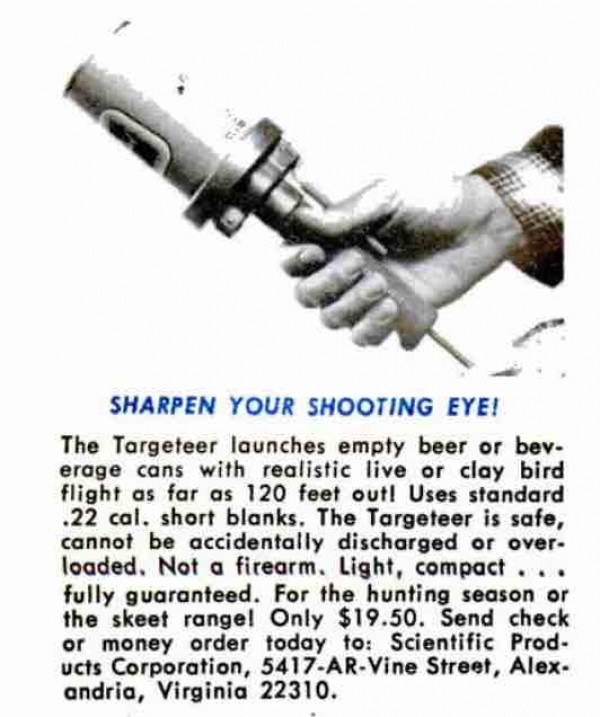
Send beer cans flying
Posted By: Paul - Tue May 24, 2016 -
Comments (10)
Category: Death, Destruction, Disasters, 1960s, Weapons
Know Your Missiles!
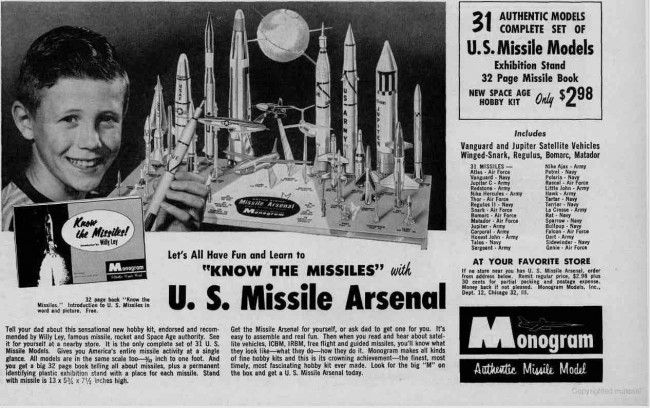
[Click to enlarge]
Original ad here.
Posted By: Paul - Sun Apr 10, 2016 -
Comments (17)
Category: Hobbies and DIY, Children, 1950s, Weapons
Champagne Gun
What does a bored billionaire do when he's temporarily run out of hundred-dollar bills to light his cigars with? Now he can turn his champagne bottles into spray guns and soak guests with premium bubbly!If you need to ask how much this costs, then you're not part of the target market. (It's $495)
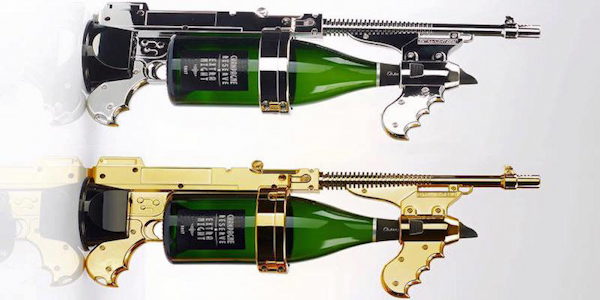
Posted By: Alex - Thu Apr 07, 2016 -
Comments (16)
Category: Overpriced Merchandise, Weapons
Anti-Aircraft Dumpling Cannon
February 1967: Munich resident Helmut G. Winter was sick and tired of the noise of military aircraft flying low over his house. So he built a catapult and started launching Bavarian potato dumplings at the planes.In one week he launched 120 dumplings. He never managed to score a direct hit. But eventually both the West German Luftwaffe and American pilots conceded defeat and agreed to a flight path that avoided his house.
Reportedly, he gave the Americans a model of his dumpling cannon as a gesture of thanks, inscribed "As a souvenir and a warning — Helmut G. Winter, The Bavarian Dumpling Shot." I bet this model has now been lost or thrown away, instead of being in a museum where it belongs.

Cincinnati Enquirer - Feb 20, 1967
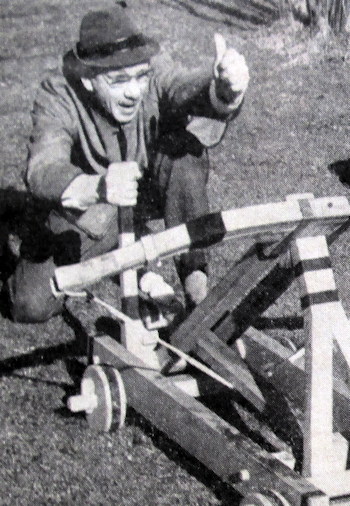
Newsweek - Mar 13, 1967
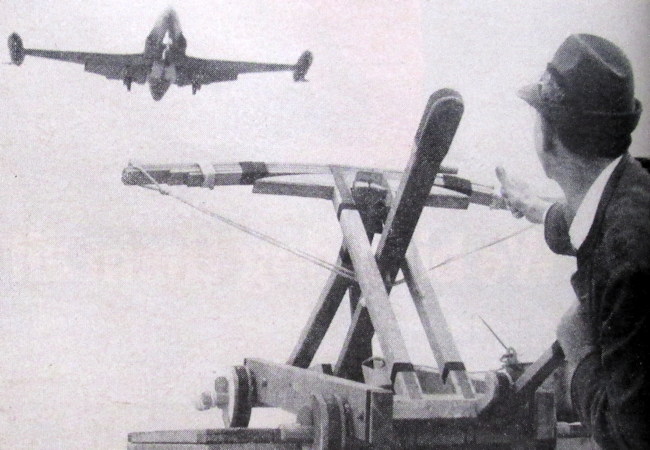
Newsweek - Mar 13, 1967
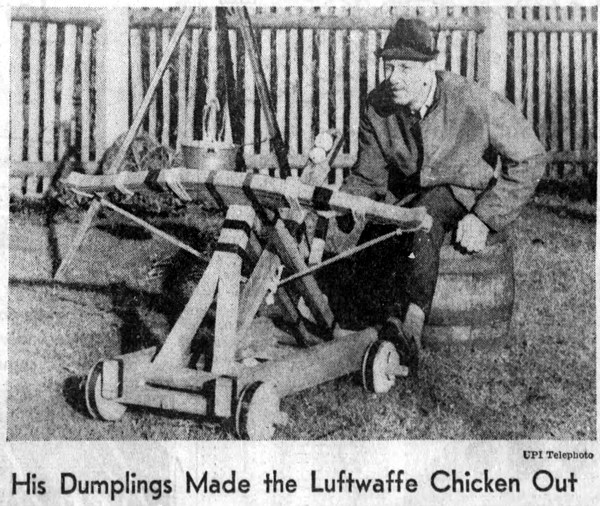
St. Louis Post-Dispatch - Mar 1, 1967
Posted By: Alex - Sat Jan 30, 2016 -
Comments (7)
Category: Military, 1960s, Weapons
Paring knives are not arms
After Wayne Anthony Evans was pulled over for speeding by a Seattle police officer, a paring knife was found in his pocket, and he was arrested for possession of a fixed-blade knife. In his defense, Evans argued that the Seattle municipal code banning fixed-blade knifes violated his constitutional right to bear arms.
Not so, the Washington Supreme Court recently decided. It didn't consider the constitutionality of the municipal code itself, but (looking narrowly at the facts of this specific case) decided that there was no historical evidence that paring knives are "arms." Therefore, they can be banned.
If Evans had been carrying a bayonet, perhaps the outcome of the case would have been different.
via Wash Post
Posted By: Alex - Mon Jan 04, 2016 -
Comments (5)
Category: Law, Weapons
Battle Bike
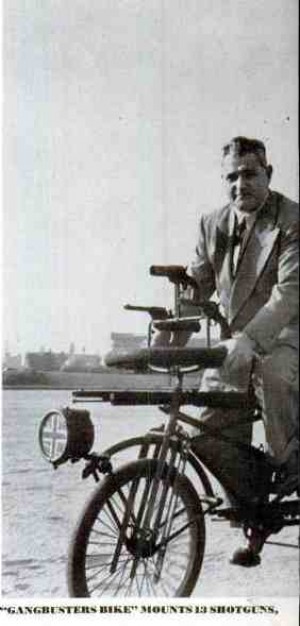
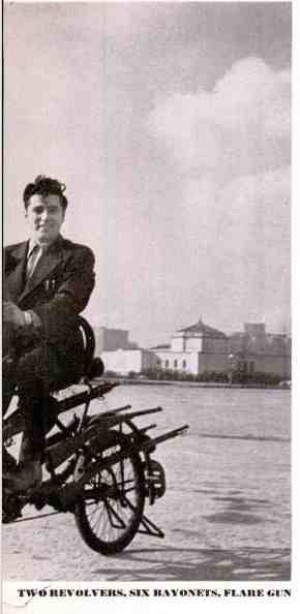
Original pic here.
Posted By: Paul - Wed Dec 23, 2015 -
Comments (8)
Category: Destruction, Surrealism, Transportation, 1940s, Weapons

| Who We Are |
|---|
| Alex Boese Alex is the creator and curator of the Museum of Hoaxes. He's also the author of various weird, non-fiction, science-themed books such as Elephants on Acid and Psychedelic Apes. Paul Di Filippo Paul has been paid to put weird ideas into fictional form for over thirty years, in his career as a noted science fiction writer. He has recently begun blogging on many curious topics with three fellow writers at The Inferior 4+1. Contact Us |




